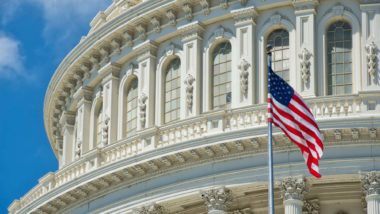Top Class Actions’s website and social media posts use affiliate links. If you make a purchase using such links, we may receive a commission, but it will not result in any additional charges to you. Please review our Affiliate Link Disclosure for more information.
Tennessee’s law requiring women who want an abortion to undergo mandatory counseling and wait at least 48 hours before having the procedure places an undue — and unfair — burden on women and is unconstitutional, a federal judge has declared.
U.S. District Judge Bernard Freidman issued his ruling Oct. 14, roughly a year after presiding over the civil trial in the case brought by a group of abortion providers on behalf of their patients. The state failed to convince the judge of the efficacy of the law in improving women’s health care in Tennessee and “protecting fetal life,” let alone the legality of the wait period, Judge Freidman said.
“The evidence shows that a waiting period does not benefit decision-making, prevent feelings of regret, or cause women to change their minds,” Judge Friedman wrote. “Rather, it is harmful because it makes it significantly more difficult to obtain an abortion by increasing the costs (of the procedure itself and to get to the clinic twice) and the frustration and anxiety of having to wait for the procedure or missing it altogether.”
The judge’s decision blocks Tennessee from enforcing the law, though state officials have said they plan to appeal.
According to The Washington Post, the Tennessee law “contained a provision that if the 48-hour waiting period were found unconstitutional, it would convert to a 24-hour waiting period.” The judge’s order prevents Tennessee from enforcing either.
In his decision, the judge reviewed and assessed each of the major witnesses who testified at trial and determined that the state’s main expert — psychology professor Priscilla Coleman — was “not credible and not worthy of serious consideration.” Her testimony was in support of the abortion waiting period given the various factors that made a woman’s decision to abort fraught with difficulty.
Coleman’s evidence was based on generalizations, broad ranges of statistics and articles she co-authored, and she admitted her expertise is exclusively in abortion decision making, not decision making in general. And her insights “as a social scientist are heavily influenced, if not entirely overridden by, her personal views, which are strongly anti-abortion,” the judge said.

The directors and doctors said women were saddled with additional financial and logistical burdens by having to go to a clinic twice to have an abortion, and in some cases they cannot return to the clinic 48 hours later due to other obligations, including the need to work. Those women can be put in a situation of requiring a surgical abortion instead of a medication abortion if they are unable to return for their second appointment in the first trimester of their pregnancy, or can be unable to have an abortion at all if they are unable to get back to the clinic before the third trimester.
Judge Friedman determined the evidence supported those claims because the number of second-trimester abortions had increased since the law went into effect, while the number of safer medication abortions had decreased, The Washington Post reported.
Friedman also criticized the law’s assumption that women are incapable of making informed, rational decisions without the counseling and waiting period.
“Defendants’ suggestion that women are overly emotional and must be required to cool off or calm down before having a medical procedure they have decided they want to have, and that they are constitutionally entitled to have, is highly insulting and paternalistic,” the judge wrote, “and all the more so given that no such waiting periods apply to men.”
Those who oppose the abortion waiting period law voiced relief at Friedman’s decision, including officials with the national Center for Reproductive Rights, which has been participating in the case, The Tennessean reported.
“Patients do not need politicians to dictate their decision-making process,” he newspaper quoted Center for Reproductive Rights senior counsel as saying. “Patients should be trusted to make decisions about their own families and healthcare.”
Meanwhile, a spokesperson for the Tennessee attorney general’s office said the state plans to file an appeal.
Have you been subjected to Tennessee’s 48-hour abortion waiting period? Or have you come up against another state’s abortion regulations? Tell us about it in the comment section below.
Adams & Boyle and the other plaintiffs are represented by Scott P. Tift and David W. Garrison of Barrett Johnston Martin & Garrison, LLC; Thomas C. Jessee of Jessee & Jessee; and Ilene Jaroslaw and Stephanie Toti of the Center for Reproductive Rights.
The Tennessee Abortion Waiting Period Lawsuit is Adams & Boyle PC, et al. v. Herbert H. Slatery III, et al., Case No. 3:15-cv-00705, in the U.S. District Court for the Middle District of Tennessee Nashville Division.
Read About More Class Action Lawsuits & Class Action Settlements:















